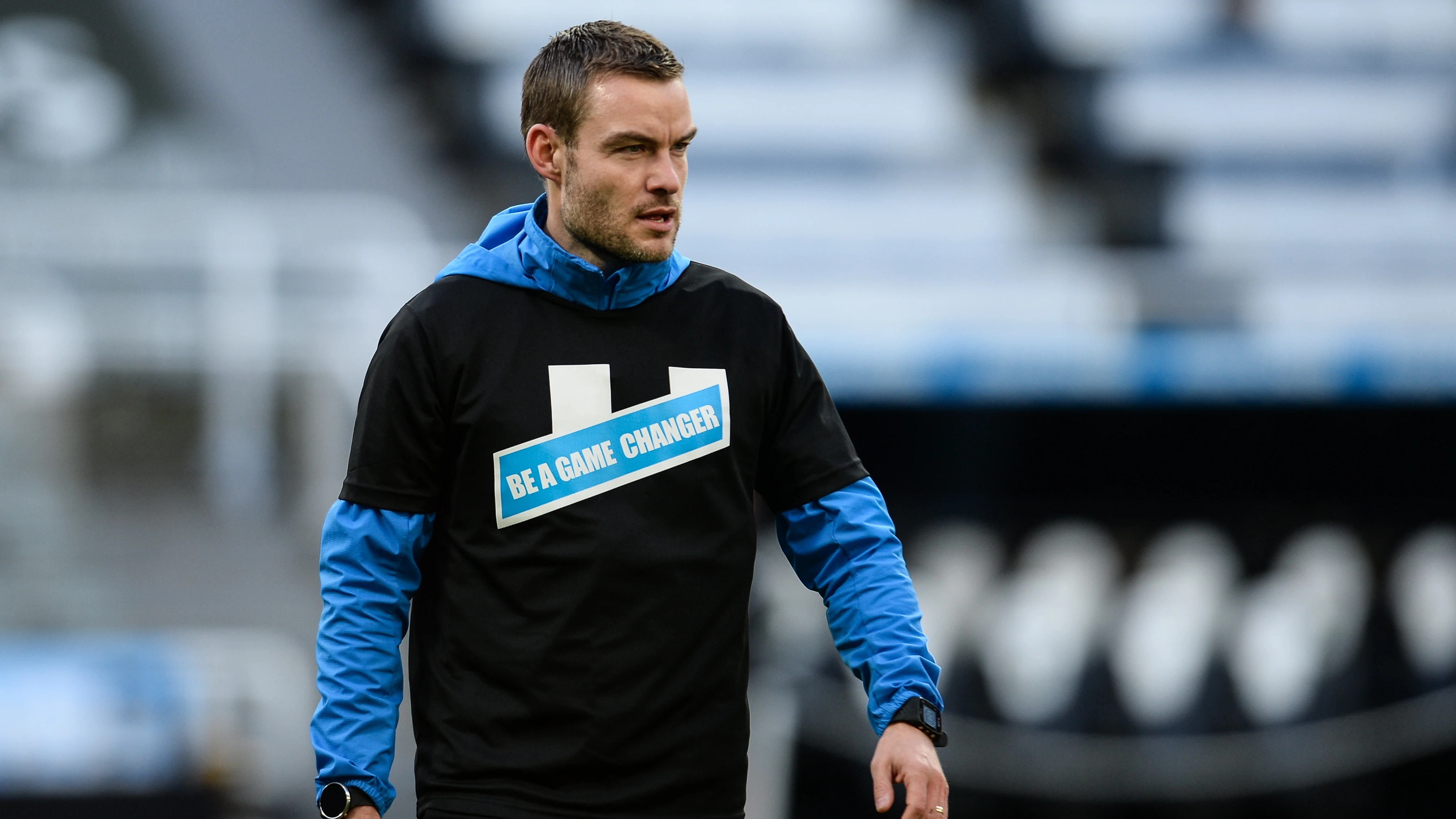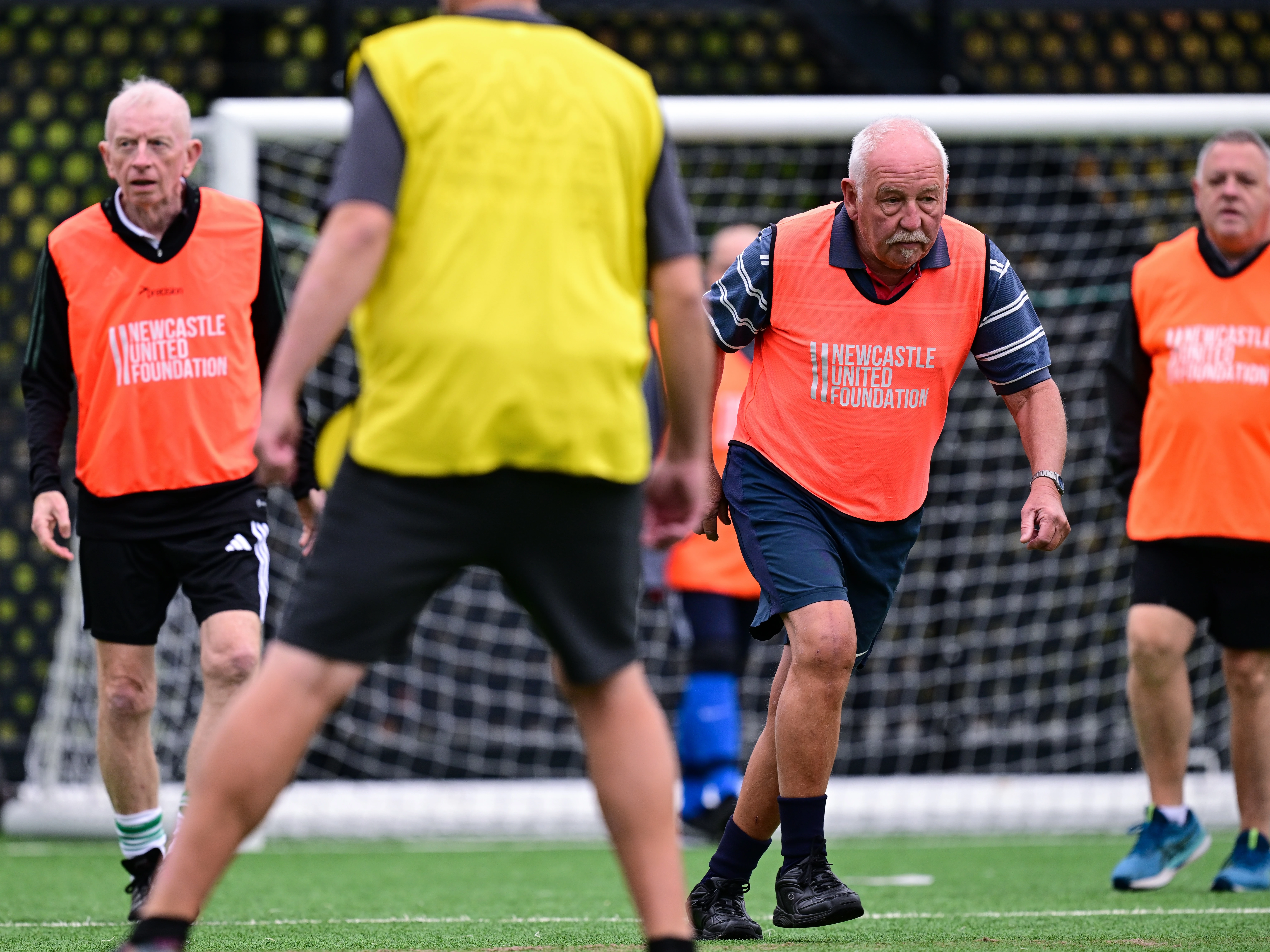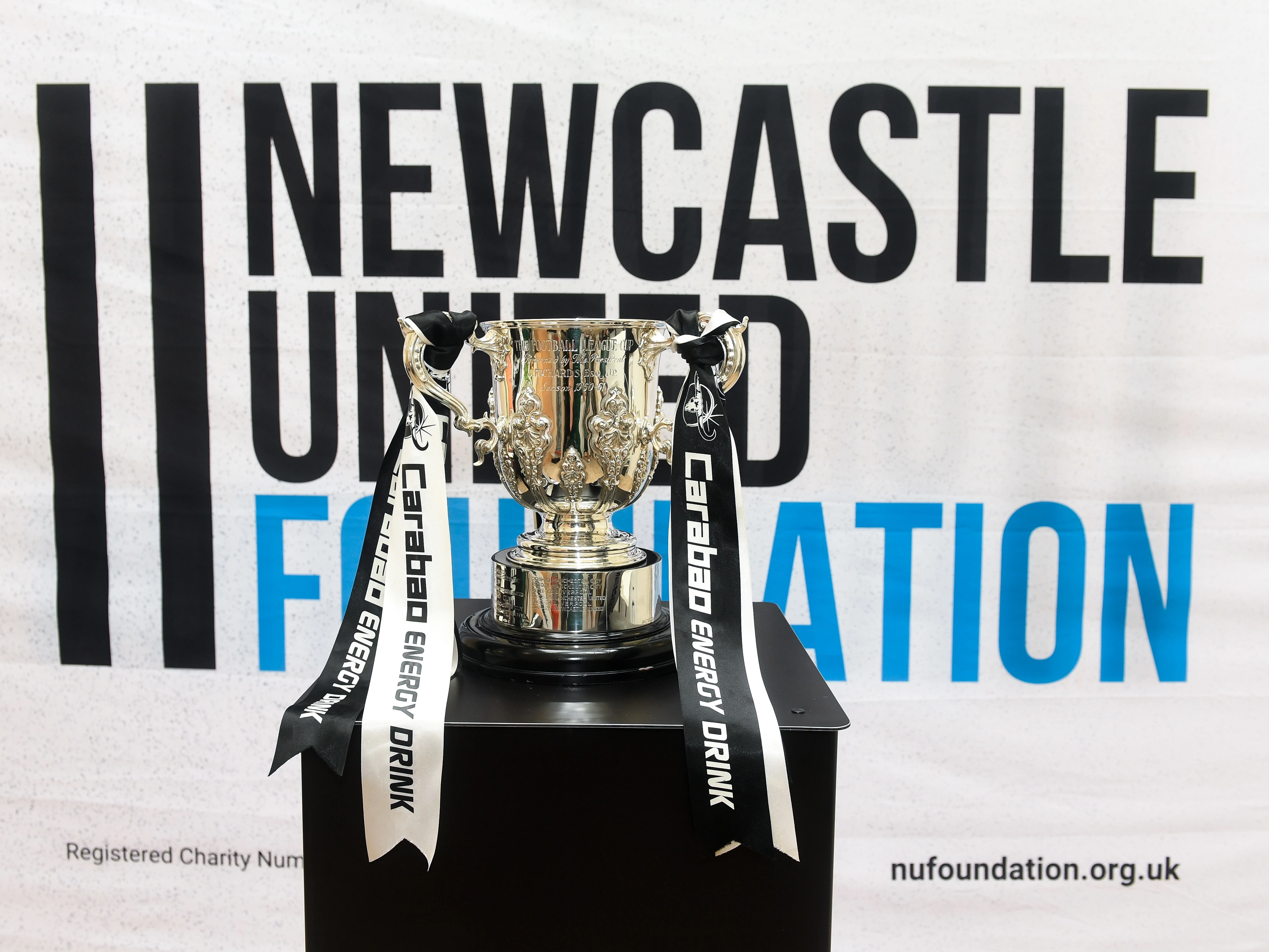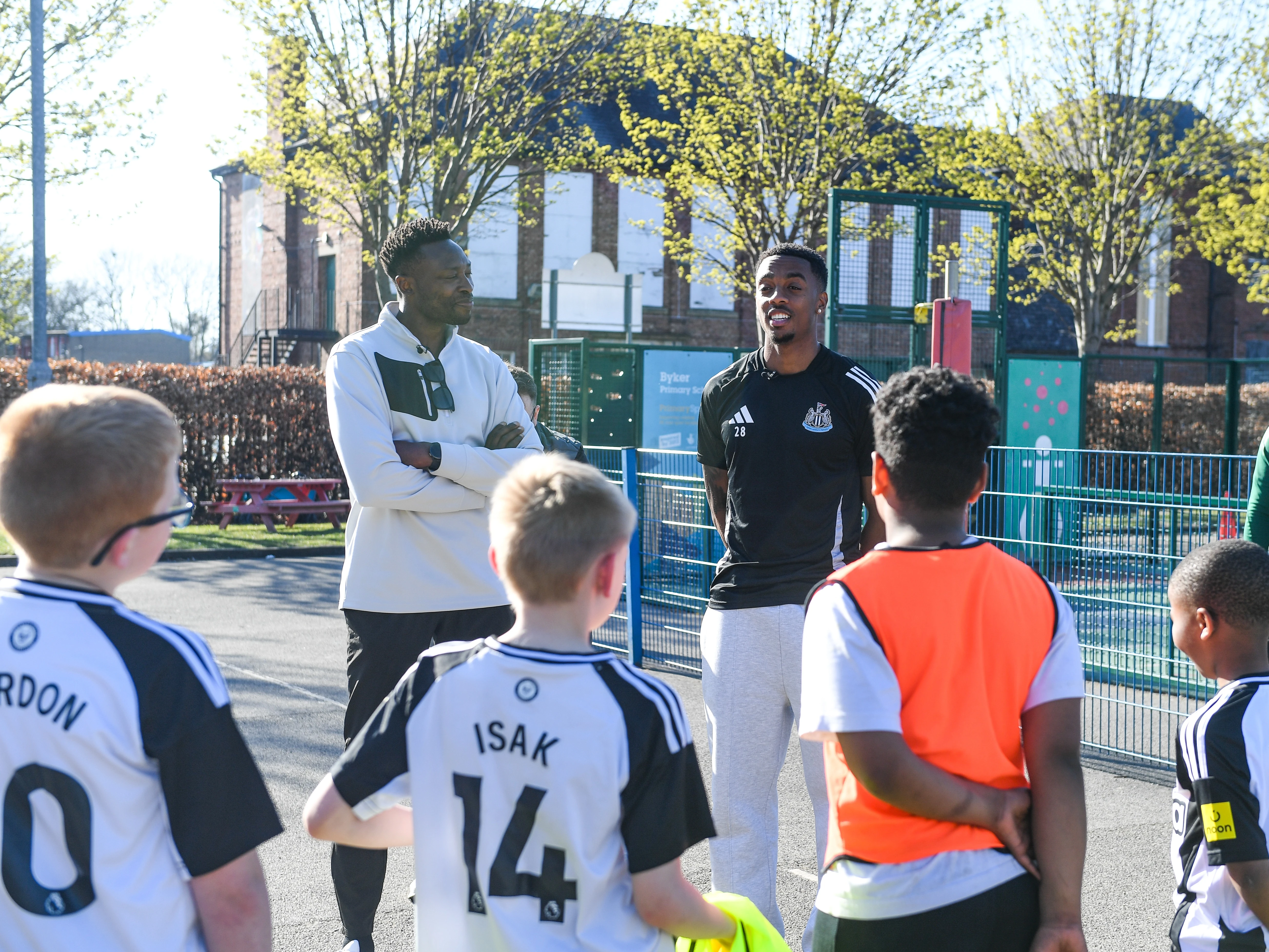A long-serving member of the club's backroom staff, Harley is backing the campaign providing guidance and advice on mental and physical wellness for the football community in the North East, through digital resources, Health and Wellbeing sessions and peer support groups.
Harley has supported a number of Be A Game Changer events since the initiative launched three years ago, including powerful and poignant guest speaking roles at Men's Health Workshops both online and at St. James' Park.
Building on his expertise in physiology, Harley incorporates mental wellbeing into his work with the Magpies’ first team and understands the value of checking in with others. By becoming a Be A Game Changer ambassador, Harley hopes to encourage the wider community to take the potentially lifesaving steps towards mental wellness.
"I've lost two good friends to suicide," Harley explained. "It was completely unexpected - it looked as if they had everything going for them and a perception from the outside that everything must be fine. They had good, secure jobs, stable family life and kids, but just really short periods of really high stress or events that happened in their life led to this happening.
"It kind of kicked me into action to think: one, I need to be able to see the warning signs better so if I see it again I'm in a better place to help somebody and two, I need to try and raise awareness, really, so more people can be aware of just checking in with people."
Based at the Magpies' training centre, Harley has supported United's players for a decade – primarily overseeing fitness, recovery and nutrition through daily briefings, training sessions and gym work with the squad, medical staff and coaching team. Over time, his day-to-day work with the team began to touch on the mood of the players and how physical performance could be affected by mental wellbeing.
"I think what became clear to me after a few years was that the physical side of it is actually really easy to quantify," he said. "We can measure all these things every day and we can almost put a number on it and track it over time and make pretty clear interventions based on it in training.
"The difficult bit is the mental side. The longer I've been there, the more I've got to know the players on a personal and professional level. I notice myself picking up on these trends when players were high or when they were low or when their mood had changed. We have all this data and we can see sometimes when a player was on a downward trend, but you couldn’t put a reason on it from a physical point of view.
"It wasn't necessarily anything happening inside the training ground - we had all the figures of how they'd slept, what they were eating and how they were training and nothing would change really, so it must be another part of the puzzle. On a few individual cases of speaking to players, it became clear to me that they're dealing with the same issues that anybody deals with outside of work and at home.
"I'm not 100 per cent sure what the perception is from the outside about football players, but it actually can be quite an isolating existence for them - particularly if they're up here without any family, their family live elsewhere, or for a foreign player who has come over, it can all be really new to them.
"They obviously have this routine where they're told what to do, where to be, what time to be there, what to wear and what to eat and everything is more or less done for them in a structured way, but that's done for the right reasons. It's when they maybe have these issues that everyone faces in their lives that they don't always know how to process them, because they’re not told how to."
Harley hopes that by having open conversations about mental health with players, colleagues, friends or family, more people can feel they will be listened to and supported if they need it.
The respected sports scientist has set himself a number of physical challenges, and started training for three marathons and half-marathons to fundraise for mental health charities in 2020. Harley also works closely with the Russ Devereux Headlight Project, founded in memory of his much-missed friend, which delivers emotional resilience programmes in schools to prepare young people to overcome crisis and high-stress situations in later life.
Newcastle United Foundation's Be A Game Changer offers mental health advice and support to adults in the North East. From the charity's dedicated campaign web page and social media, the Foundation shares tips on keeping physically and mentally healthy, signposts to support for yourself or a friend and a space to share the stories of United fans who have experienced mental health issues, lost a loved one to suicide or overcome societal stigmas to show others they are not alone.
The campaign also provides mental wellness-boosting sessions like Sleep and Stress workshops, Walking Football for older players of the game and Peer Support Group meetings. A growing Facebook community support group of more than 2,500 members a safe place to offer encouragement and speak openly about mental health.
Harley said: "I'm quite fortunate in that I'm still at work, and our environment every day is that we're in strong teams and surrounded by people who you see so often that you can pick up when people are up and down. But I'm really aware that there's a lot of people - including our supporters - who have either been made redundant, are on furlough or have been on furlough for the best part of a year now - maybe they're retired or live alone, and don't have family and friends around them. That can be incredibly isolating.
"One of the messages I've had in my head is to find your own team. What Be A Game Changer is offering is a team you can really easily pick up your phone and become involved with. The more you can engage with the events and - we hope when all this clears up - we can get people together, whether that's in a football sense or at Be A Game Changer events, it's an opportunity to be part of that team.
"You can get a lot from just being involved with that socially and interacting with people and just knowing that there's no stigma there because of the nature of the organisation. People are willing to listen and it's a good team to tap in to and be part of.
"One thing that's guaranteed is that everyone over the last year has experienced a situation that none of us could have expected, and everybody has got a different story to tell from the last year. I think because we've been deprived of that interaction for a year, when it can return, it's the best thing we can do - to just ask how they've found it, and tell your own story as well."
Be A Game Changer is funded by Newcastle City Council, Premier League Charitable Fund and the North East and North Cumbria Suicide Prevention Network, providing a number of community sessions each week to support mental wellbeing. For more information about Be A Game Changer or for help and advice from Newcastle United Foundation, visit nufoundation.org.uk/beagamechanger.




